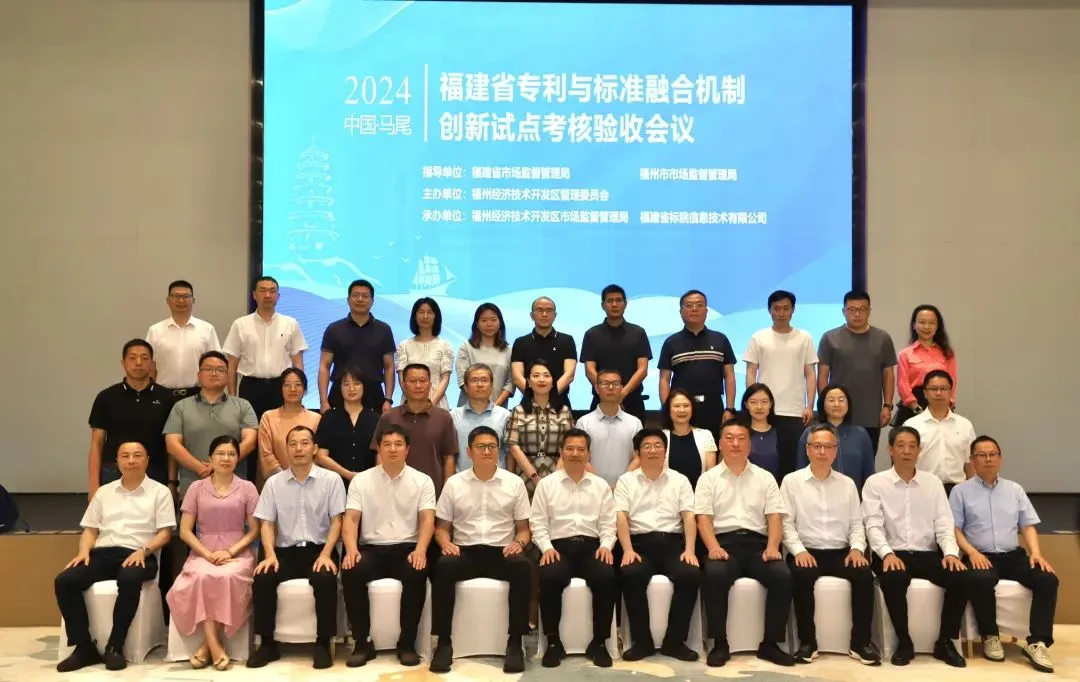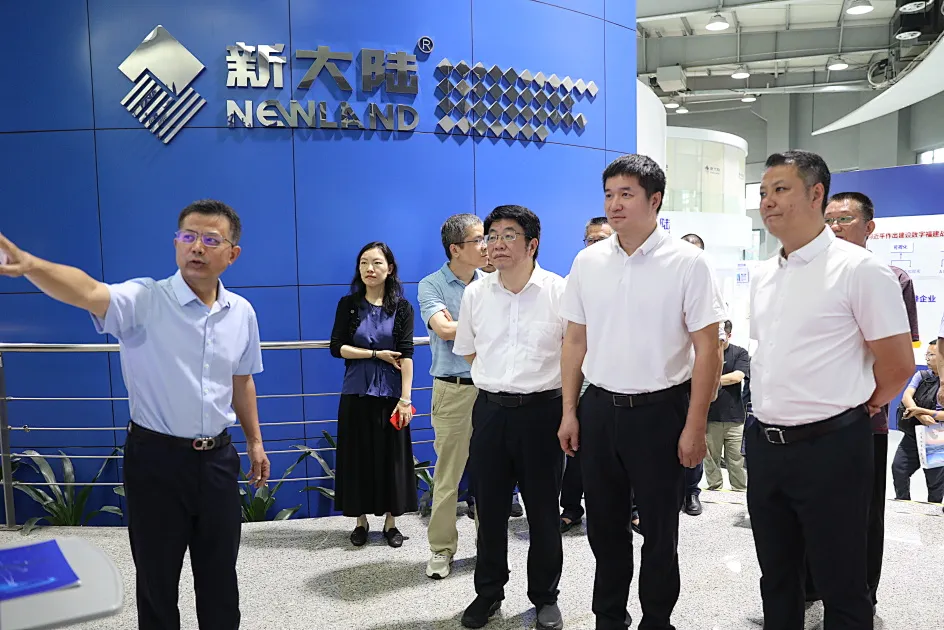On June 13, 2024, Fujian Province achieved a significant milestone in innovation with the successful completion of the acceptance for its Provincial Innovation Pilot Project for Patent and Standard Integration. This project, the first of its kind in China, was guided by the Fujian Provincial Market Supervision Administration, coordinated by the Fuzhou Municipal Market Supervision Administration, and supported by the expertise of technical institutions like the Fujian Institute of Standardization. The acceptance evaluation was led by the Fuzhou Economic and Technological Development Zone Management Committee. The successful acceptance of this pilot project provides a replicable and scalable model for Fujian Province and the entire nation. Among the 12 participating enterprises, Newland stood out with its innovative capability in integrating patents and standards, ranking first in the evaluation results.

The meeting was attended by leaders from various levels of government and regulatory bodies , including Huang Shuimu, Party Secretary and Director of the Fujian Provincial Market Supervision Administration and Director of the Fujian Intellectual Property Bureau, Zhuang Yongzhi, Party Secretary of the Fuzhou Economic and Technological Development Zone Committee and Party Secretary of the Mawei District, Fuzhou, Wang Gang, Deputy Party Secretary of the Fuzhou Economic and Technological Development Zone, Director of its Administrative Committee, and District Mayor of Mawei District People's Government in Fuzhou, Liu Xianyi, Member of the Party Leadership Group, Deputy Director, and First-class Inspector of the Fujian Provincial Market Supervision Administration, Chen Zongsheng, Party Secretary, Director, and First-class Researcher of the Fuzhou Municipal Market Supervision Administration, and Gui Hongbo, Director of the Standardization Department of the Fujian Provincial Market Supervision Administration. The acceptance expert panel was headed by Professor Wang Xinchen, Vice President of Fuzhou University.
Since its launch in 2021, the Fujian Provincial innovation pilot construction for patent and standard integration has yielded impressive results. The pilot project established a comprehensive integration and innovation mechanism, known as "technical patenting, patent standardization, and standard industrialization," which has empowered enterprises to establish a synchronized process for scientific and technological innovation, patent application, standard conversion, and industrial development. The initiative successfully incorporated technical solutions and key technological features from 245 patents into 57 standards, effectively facilitating the conversion of scientific and technological achievements and enhancing the quality of products and services. The project has also had a significant radiating effect on intellectual property improvements within the development zone, increasing the number of authorized invention patents from 240 to 472 and the effective number of inventions from 1,692 to 2,326.
On June 13th, Professor Wang Xinchen, the head of the expert panel, along with representatives from the Fujian Provincial Market Supervision Administration, Fuzhou Municipal Market Supervision Administration, and the Fuzhou Economic and Technological Development Zone Market Supervision Bureau, visited Newland to provide guidance on the pilot project, while touring Newland's Innovation Achievements Exhibition Hall and the National Engineering Laboratory. During the visit, the delegation listened attentively to Newland's presentations on its industry technology layout, the conversion of scientific innovation achievements, and its intellectual property efforts. They also experienced firsthand the impressive applications of advanced technologies, including human behavior recognition, visual inspection, and facial liveness detection.

Professor Wang learned that Newland has served as an expert member of four subcommittees (SC37, SC35, SC28, SC17) under the National Information Technology Standardization Technical Committee. The Company has frequently led or participated in the formulation of national and industry standards for IoT, digital identity, artificial intelligence, and biometric features, which includes leading one national standard, "Information Technology --- Biometric Recognition Data Exchange Format --- Part 5: Face Image Data," participating in 35 national standards, leading 6 industry standards, and 7 local standards. Notably, Newland also led the Intelligent Manufacturing Comprehensive Standardization Project of the Ministry of Industry and Information Technology, which focused on the "Research and Experimental Verification Platform for Barcode-based Standards for Interconnection between Intelligent Equipment and Objects." Simultaneously, it actively participated in the National Key Research and Development Program NQI special project, contributing to the "Research on Key Technology Standards for Human Body Biometric Recognition." Currently, the Company holds 700 valid national patents and 14 valid international patents. By incorporating QR code patents into the industry standards it has led, such as the "General Specifications for Information Technology QR Code Scanners," it has filled the gap in China’s IoT barcode reading standards, achieving international advanced levels. This effort has earned Newland the First Prize for Fujian Province Standard Contribution once and the Second Prize three times, in addition to the Science and Technology Award from the China Association for Standardization and the honor of Being an Excellent Enterprise in Fujian Private Economy Standard Innovation. Professor Wang and his delegation highly praised and strongly endorsed Newland's work in technological innovation.
In the near future, building upon the successful acceptance of the Fujian Provincial Innovation Pilot for Patent and Standard Integration, Newland will leverage this achievement as a springboard to cultivate and develop new quality productive forces, firmly establishing the development concept of "technical patenting, patent standardization, and standard industrialization," and using standards as a driving force for technological innovation and industrial upgrades. This strategic approach aims to elevate the innovative development of its patent-standard integration mechanism to new heights. Furthermore, with its strong standardization work, Newland will continue to integrate technological innovation resources, leading with standards and empowering with patents, so as to create a new ecosystem for the integrated development of patents and standards, contributing to the development of new quality productive forces and promoting high-quality economic development.





















 Search
Search







 专业的顾问服务
专业的顾问服务